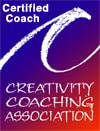|
The more you repeat something, the more ownership you take of it. The more ownership you take of something, also known as the ownership effect, the more invested in and valued is that thing. This applies to new skills learned in therapy.
One of the most frequent things I hear from therapy patients about a new learned therapy skill, is that it “doesn’t work.” Very often, after more exploration, what I find is that the patient hasn’t tried the skill “enough.” They have tried it once, maybe even twice, but have not repeated it daily, let’s say, for a week or more, however long it might take for that skill to take effect. I will give you an example. Have you ever loaded the dishwasher, folded a towel, or done another chore so often, that you have your own way of doing it? Have you ever gone behind someone else, to “correct” them and fix it to your way? With that chore, you have repeated that behavior often enough that you feel ownership of it. So much so, that you feel invested in the way that it is done, and value it being done correctly. You may even get a feeling of pride or satisfaction from doing it. The ownership effect is a phenomena tried and true in psychological research, and is used throughout the world of health, marketing and even business. Have you ever worked for a company that offered you company shares as part of your compensation? They are hoping to take advantage of the ownership effect, to make you feel more emotionally invested in their company (if you “own” some of it, you will work harder for it!) As your therapist, I want you to similarly take ownership of, and feel emotionally invested in your life, and the tools you learn in session to create your happiest self. For you, this means repetition. When you learn a new skill, let’s say, meditation, you need to repeat it and practice it again and again until it feels like yours. Only then will the ownership switch flip in your brain, helping you feel invested in the tool. Then you will naturally use it in the best possible ways to improve your life. The bad news is: when you are learning something new in therapy there will be a curve, or a period of time during which you put yourself through the motions just for repetition’s sake. The good news is: after doing this enough, you will automatically begin to know how to best use and apply the tool and begin to organically see positive change in your life. So, dear creatives, when you get a new skill, try it, and try it again. Talk to during session about the difficulties you have with practicing the skill and fears you have about its benefit. Be patient with yourself as you learn, and prepare yourself to see the magic you can create in your own life! (c) 2017 Creatively, LLC Comments are closed.
|
get more from The Creativity CoursesLiking educational topics and knowing what's hot in creativity? Creatively has online courses, with an interactive creative community, coaching sessions and more in the Creativity Courses. Want these blogposts in a newsletter? Subscribe here, and get a free gift. Cindy Cisnerosis a Creativity Coach, Creative Therapist and Professional Artist in Sykesville, Maryland. She is an expert straddling the realms of arts, creativity research, psychology, therapy, and coaching. She provides Online Creativity Counseling in Maryland and Virginia, and Online Creativity Coaching throughout the USA, Canada and the UK tailored for the discerning, imaginative, artistic, and neurodiverse. The information provided in this blog is from my own clinical experiences and training. It is intended to supplement your clinical care. Never make major life changes before consulting with your treatment team. If you are unsure of your safety or wellbeing, do not hesitate to get help immediately.
Archives
July 2024
|
|
Concierge Therapy for Creatives in Maryland
Creativity Coaching Worldwide including the USA, UK and Canada |
Telephone |
|


 RSS Feed
RSS Feed

